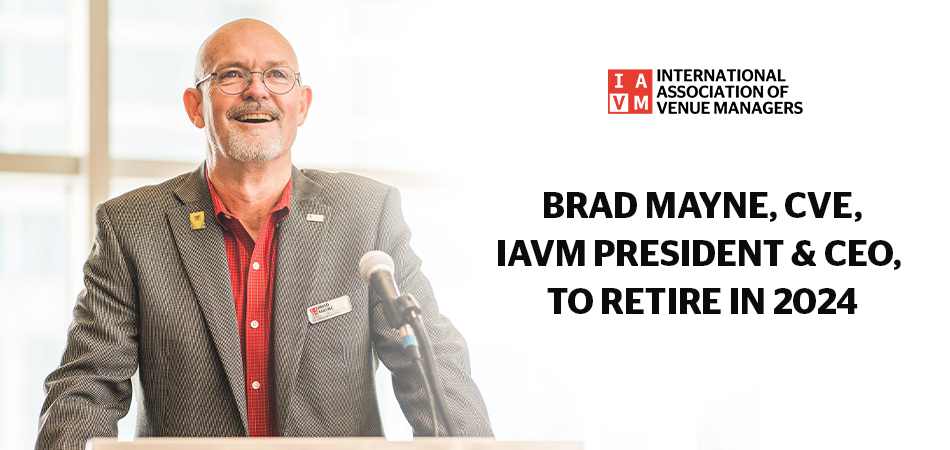MCEC Launches New Resources to Help Event Organizers Make a Positive Impact
By Maddison Devoy
Melbourne Convention and Exhibition Centre (MCEC) has released an online toolkit to help customers implement corporate social responsibility as part of their event.
Launched as part of MCEC’s new website, the Positive Impact Guide will help event organisers make a difference for both their delegates and the community.
While showcasing sustainability, inclusion, and accessibility offerings at the venue, MCEC’s Positive Impact Guide can also help customers recognize Traditional Owners, reduce event waste, support children’s charities, and conserve the iconic Yarra River.
Impact Guide can also help customers recognize Traditional Owners, reduce event waste, support children’s charities, and conserve the iconic Yarra River.
In addition, MCEC’s leading community partnership program can provide meaningful add-on experiences for delegates attending events at the venue.
This includes the OzHarvest’s flagship Cooking for a Cause program, a team building experience in MCEC’s kitchens that reduces food waste and helps feed those in need.
MCEC is the only convention and exhibition center nationally to have formal ‘Awesome’ partnership with food rescue organization OzHarvest.
Through MCEC’s Club Melbourne Ambassador Program, and partnership with The Startup Network, customers can also be connected to inspiring potential speakers for their event.
By incorporating corporate social responsibility, event organizers can adapt to changing delegate expectations and help attract sponsors, speakers, and exhibitors.
MCEC’s Head of Advocacy, Impact & Reputation Rohan Astley said the venue hoped to grow its Positive Impact Guide for organisers over time.
“This online resource is a way for us to work with customers and partners, to deliver positive environmental, social and economic outcomes through events,” he said.
“At MCEC, we have an ambitious five-year sustainability strategy, and a long-standing community partnership program that sees us give more than $2 million of in-kind event services to charities per year.
“However, we know many organizers share our commitment to leave positive legacies, be they big or small.
“We’re hoping this resource is just the beginning, and that in the future we can continue to offer new ways for our customers to make an impact in the community.”
To view the guide, click here.
Maddison Devoy is Corporate Communications Specialist – Media at the Melbourne Convention and Exhibition Centre.
Fort Worth Convention Center Begins Construction on Phase 1 Expansion
By Andra Bennett
A 20-year planned expansion of the Fort Worth Convention Center is finally underway. In August, fencing went up to signal the beginning of construction on Phase 1 of the project, which will deliver new state-of-the-art food & beverage facilities, demolition of an outdated 1983 annex, increasing the center’s loading docks from seven to eleven, and realignment of Commerce Street to the east to create a site pad for a future convention hotel. This $95 million phase is expected to be completed in early 2026.
On August 9, a Convention Center District Town Hall meeting informed more than 300 downtown stakeholders,  residents, businesses, and elected officials about the timing of specific construction activities, street and parking lot closures, traffic flow, green space, and infrastructure plans. The meeting was promoted by Downtown Fort Worth Inc. and included presentations by the Texas A&M System and the Omni Fort Worth Hotel, both of which are planning new developments on either side of the convention center.
residents, businesses, and elected officials about the timing of specific construction activities, street and parking lot closures, traffic flow, green space, and infrastructure plans. The meeting was promoted by Downtown Fort Worth Inc. and included presentations by the Texas A&M System and the Omni Fort Worth Hotel, both of which are planning new developments on either side of the convention center.
“According to the State of Texas, Fort Worth’s visitor economy generates over $3 billion annually and employs over 30,000 of our residents,” Mike Crum, director of Public Events for the City of Fort Worth, told the audience. “This expansion will allow us to deliver an even more delightful experience to our guests and remain competitive with other Texas cities.”
Texas A&M broke ground in June on its new Fort Worth campus, which will include an innovation and research facility, a law and education building and a gateway office building. It is expected to cost $340 million and be complete by October 2025.
The Omni Fort Worth Hotel, 26 steps from the convention center with 618 guest rooms, outlined plans for a new $200 million adjacent structure with an additional 400 guest rooms and 50,000 square feet of new meeting space. Opening is anticipated in 2026.
“Our development teams are very cognizant of the amount of construction that will be happening concurrently in this area of downtown and are in communication with each other and will remain in communication with community stakeholders who may be impacted,” Crum said.
Andra Bennett
Marketing Communications / Public Events Department
$40 Million Roof Replacement Project Underway at New Orleans Ernest N. Morial Convention Center
By Communications Department
The New Orleans Ernest N. Morial Convention Center (NOENMCC) is replacing 1.9 million square feet of traditional roofing with a new, energy-efficient roofing system. The $40 million roof replacement project is part of a $557 million capital improvement plan and will be under construction until mid-2024.
“We are taking a comprehensive approach to enhancing and transforming our massive facilities in order to  elevate the visitor experience and reduce our environmental footprint here at the Convention Center — from new technology inside to new exterior greenspaces and a fantastic new heat-deflecting roof,” said Michael J. Sawaya, Convention Center President/CEO. “This is an essential upgrade to not only improve and protect our facilities, but also to significantly advance our sustainability goals.”
elevate the visitor experience and reduce our environmental footprint here at the Convention Center — from new technology inside to new exterior greenspaces and a fantastic new heat-deflecting roof,” said Michael J. Sawaya, Convention Center President/CEO. “This is an essential upgrade to not only improve and protect our facilities, but also to significantly advance our sustainability goals.”
Utilizing new commercial roofing technology, robots have begun spraying polyurethane foam insulation directly onto the roof’s surface to maximize efficiency, safety, and savings. The coating of insulation is expected to raise the energy efficiency rating, or R-value, by nearly 10 points and deliver significant energy savings. Once insulated, a “cool roof” material will seal the upgraded system. The highly reflective sheen will divert heat away from the building. It’s similar to a process used on the roof of the Caesar’s Superdome and is especially effective in urban areas where temperatures are usually higher than in suburban and rural areas.
The new roof will advance the Convention Center’s sustainability goals and help maintain its Leadership in Energy and Environmental Design (LEED) Gold certification status while still meeting all requirements for durability and safety in all weather conditions, including hurricanes. In addition, the contractors are recycling approved materials from the previous roof. The existing rock ballast has already been cleaned and reused in parking lots. Recycling this material has saved approximately 1,600 tons of rocks from landfills. We are also improving select gutters and downspouts so they can continue to divert up to 90 percent of rainwater runoff directly into the Mississippi River, reducing strain on New Orleans’ drainage system.
Roof construction will not impact Convention Center guests or events. The Ernest N. Morial New Orleans Exhibition Hall Authority authorized funding for the roof project in January 2023.
Capital One Arena Opens New Premium Lounge Backed by Celebrity Chef José Andrés
By SportsBusiness.com
Washington DC’s Capital One Arena is to open a new premium guest experience lounge featuring a food offering from renowned chef and restaurateur José Andrés.
The Signature Club & Lounge, set to debut in the autumn, offers early entry and exclusive access to the space ahead of Washington Capitals and Washington Wizards games. Membership also carries the privilege of presale priority for the hundreds of concerts and events at Capital One Arena.
The nearly 5,000 sq ft space, located at the corner of 7th Street and Gallery Place, has been designed by global architecture, design, and planning firm Gensler to be the new arrival point to the arena for Signature Club members and guests.
global architecture, design, and planning firm Gensler to be the new arrival point to the arena for Signature Club members and guests.
Among the features across the lounge is the food and beverage design developed by José Andrés Group, the company led by the established Spanish-American chef who has partnered with Aramark Sports + Entertainment, the venue’s hospitality provider.
“We invite fans to become members of this exclusive club to enjoy a true VIP experience with first-class amenities for games, concerts, and events,” said Jim Van Stone, president of business operations at Monumental Sports & Entertainment (MSE).
“We are excited to offer another high-value, high-quality experience for fans to enjoy time with family, friends, and colleagues and we expect it will drive businesses in search of a go-to destination in downtown DC to entertain clients.”
The new Signature Club & Lounge will have a limited number of memberships to maintain a premium experience for guests. Members may take advantage of a dedicated point-of-entry to the Signature Club to enjoy its hospitality and then travel directly across the concourse to the Signature Cocktail Lounge within a redesigned mega-suite before heading to their seats. Members’ seat locations have been hand-selected to be closest to center court/ice for 15 Wizards and 15 Capitals games in the first year, elevating to 20 games per team each season after. Members will also experience presale preference for any concert or event at the arena, with seats located with exceptional views of the artists and stage.
The lounge benefits from extensive glazing and will feature top-of-the-line finishes, color-changing lights and ample gathering space.
Sam Bakhshandehpour, president of José Andrés Group, said: “We are thrilled to announce this exciting partnership between José Andrés Group and Monumental Sports & Entertainment. This collaboration represents a powerful union of culinary excellence and sports and entertainment innovation.
“Together, we aim to create unforgettable experiences that will delight and inspire our guests, fans, and the entire community.”
The Signature Club & Lounge joins a collection of premiums spaces in Capital One Arena including the Etihad Airways Lounge, Caesars Sportsbook Lounge, Ultra Club, and Players Club for all sporting events, and the Michelob Ultra Courtside Lounge and Courtside Premium Lofts available for Wizards games.
Brad Mayne, CVE, IAVM President & CEO, to Retire in 2024

The International Association of Venue Managers (IAVM) announces the retirement of Brad Mayne, CVE, President & CEO, effective July 31, 2024.
Mayne took the helm of IAVM in 2016, and under his leadership has led membership to a historic high. He also led IAVM and the venue management industry successfully through the COVID-19 pandemic, tirelessly advocating for state and federal assistance to keep venues open.
“Brad has made tremendous strides in not only advancing the membership of IAVM, but also in revitalizing the events we offer and the success of our Foundation,” stated Kerry Painter, CVE, CEM, CMP, Chair of the IAVM Board of Directors. “The Board of Directors are grateful to Brad for his ongoing dedication to the success and growth of our industry, as well as to the members of IAVM. IAVM has been extremely lucky to have had his guidance and leadership, especially during the past few years through the pandemic. Brad was absolutely the right person at the right time leading the charge of the association and industry.”
Mayne was a member of IAVM for over 30 years, prior to being appointed as the President and CEO, and was the 2009 recipient of the Charles A. McElravy Award and the Foundation Legacy Award winner in 2011. He previously served as the President and CEO of both MetLife Stadium (East Rutherford, NJ) and American Airlines Center (Dallas, TX).
“IAVM has been a tremendous part of my professional career,”said Mayne. “As both a member and serving as the President and CEO, my mission has always been to enhance venue professional careers by generating hope through proper resources. I look forward to continuing working with IAVM leadership and our numerous volunteers during the next 11 months.”
Following a detailed plan of succession for leadership, a Board CEO Selection Committee will be established in the coming months to begin paving the way to identify the new CEO and President.
Mayne will officially step down at the conclusion of IAVM’s VenueConnect Conference and Trade Show, which will be held July 28-31, 2024 in Portland, Oregon.
Do you want to receive a Front Row News weekly digest?
Categories
- Allied (856)
- Architecture (147)
- Arenas (744)
- Career (890)
- Convention Centers (889)
- Education (608)
- Events (1,528)
- Food & Beverage (193)
- Foundation (113)
- Guest Experience (1,482)
- Industry News (2,253)
- Leadership (1,872)
- Marketing (150)
- Membership (1,985)
- Music (212)
- Performing Arts Centers (453)
- Professional Development (398)
- Research (127)
- Safety & Security (425)
- Sports (763)
- Stadiums (607)
- Student (159)
- Technology (515)
- Ticketing (92)
- Touring (82)
- Trends (357)
- Uncategorized (771)
- Universities (216)
- Video (25)
- Young Professional (198)
Twitter Feed
- Twitter feed loading
Recent Posts
- GEODIS Park Selects Allied Universal As Its Preferred Event Services Provider
- Venuworks Appoints Marc Solis as Executive Director of the Fresno Convention and Entertainment Center
- Los Angeles Convention Center Diverts 8,000 Pounds of Wood Waste to Local Foundation Supporting Fire Victims
- Fort Worth Unveils Plans for Phase 2 of Convention Center Transformation
- San Diego Convention Center CEO Announces Retirement After a Decade of Leadership
Categories
- Allied
- Architecture
- Arenas
- Career
- Convention Centers
- Education
- Events
- Food & Beverage
- Foundation
- Guest Experience
- Industry News
- Leadership
- Marketing
- Membership
- Music
- Performing Arts Centers
- Professional Development
- Research
- Safety & Security
- Sports
- Stadiums
- Student
- Technology
- Ticketing
- Touring
- Trends
- Uncategorized
- Universities
- Video
- Young Professional
Archives
- February 2026
- January 2026
- December 2025
- November 2025
- October 2025
- September 2025
- August 2025
- July 2025
- June 2025
- May 2025
- April 2025
- March 2025
- February 2025
- January 2025
- December 2024
- November 2024
- October 2024
- September 2024
- August 2024
- July 2024
- June 2024
- May 2024
- April 2024
- March 2024
- February 2024
- January 2024
- December 2023
- November 2023
- October 2023
- September 2023
- August 2023
- July 2023
- June 2023
- May 2023
- April 2023
- March 2023
- February 2023
- January 2023
- December 2022
- November 2022
- October 2022
- September 2022
- August 2022
- July 2022
- June 2022
- May 2022
- April 2022
- March 2022
- February 2022
- January 2022
- December 2021
- November 2021
- October 2021
- September 2021
- August 2021
- July 2021
- June 2021
- May 2021
- April 2021
- March 2021
- February 2021
- January 2021
- December 2020
- November 2020
- October 2020
- September 2020
- August 2020
- July 2020
- June 2020
- May 2020
- April 2020
- March 2020
- February 2020
- January 2020
- December 2019
- November 2019
- October 2019
- September 2019
- August 2019
- July 2019
- June 2019
- May 2019
- April 2019
- March 2019
- February 2019
- January 2019
- December 2018
- November 2018
- October 2018
- September 2018
- August 2018
- July 2018
- June 2018
- May 2018
- April 2018
- March 2018
- February 2018
- January 2018
- December 2017
- November 2017
- October 2017
- September 2017
- August 2017
- July 2017
- June 2017
- May 2017
- April 2017
- March 2017
- February 2017
- January 2017
- December 2016
- November 2016
- October 2016
- September 2016
- August 2016
- July 2016
- June 2016
- May 2016
- April 2016
- March 2016
- February 2016
- January 2016
- December 2015
- November 2015
- October 2015
- September 2015
- August 2015
- July 2015
- June 2015
- May 2015
- April 2015
- March 2015
- February 2015
- January 2015
- December 2014
- November 2014
- October 2014
- September 2014
- August 2014
- July 2014
- June 2014
- May 2014
- April 2014
- March 2014
- February 2014
- January 2014
- December 2013
- November 2013
- October 2013
- September 2013
- August 2013
- July 2013
- June 2013
- May 2013
- April 2013
- March 2013
- February 2013
- January 2013
- May 2012
- March 2012
- December 2011
- November 2011
- October 2011
Recent Comments
- Frank Bradshaw, Ph.D., CVE on John Meyer, CVE, a Tireless Advocate of Certification for Venue Professionals, Has Died
- Neil Sulkes on Hilary Hartung, Friend to Many in Venue Marketing, Has Left Us
- Jason Parker, CVE on The Devastation of Hurricane Helene and How We Can Support One Another
- Larry Perkins on Touhey Testifies Against Speculative Ticketing Before Congressional Subcommittee
- Peter Secord on Major Players for Planned Elkhart Amphitheater Were in the Mix at VenueConnect
